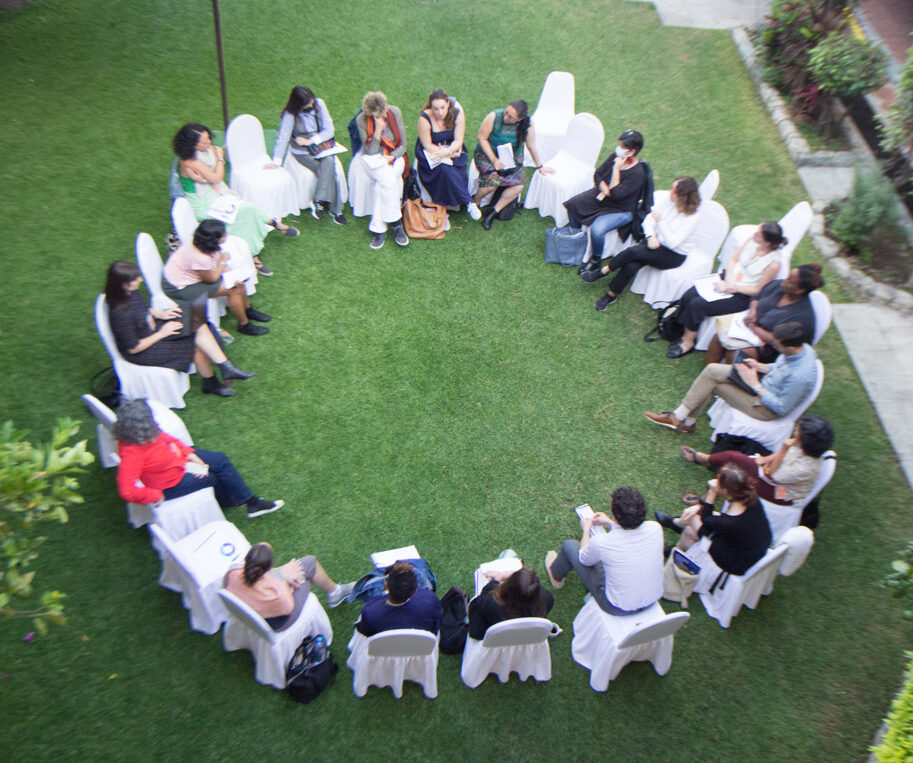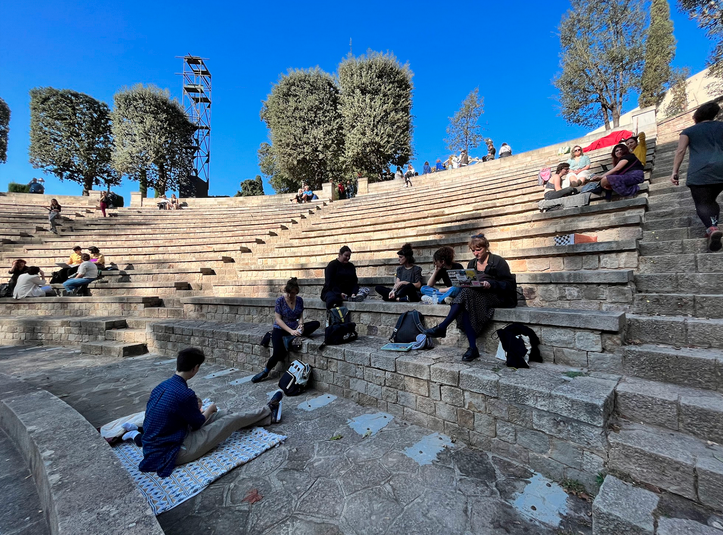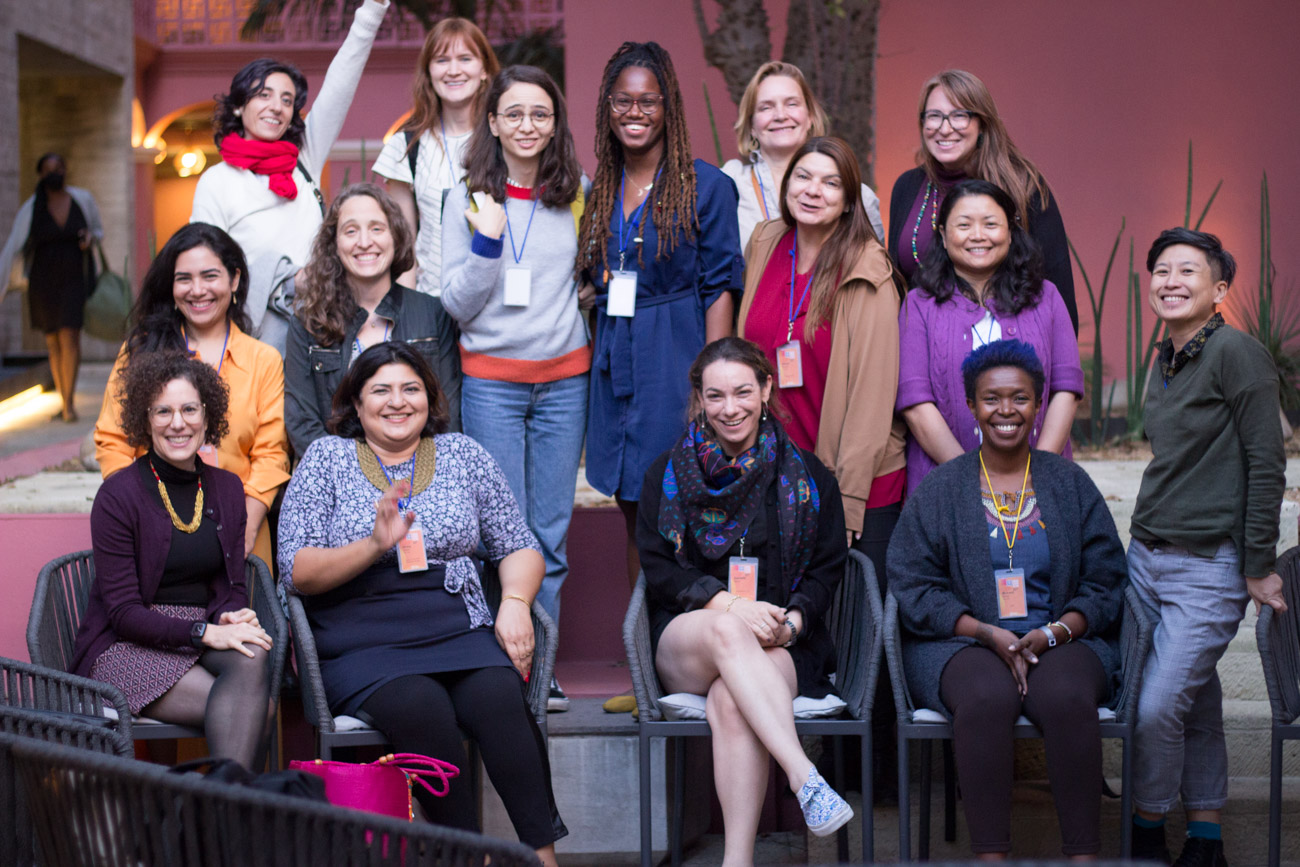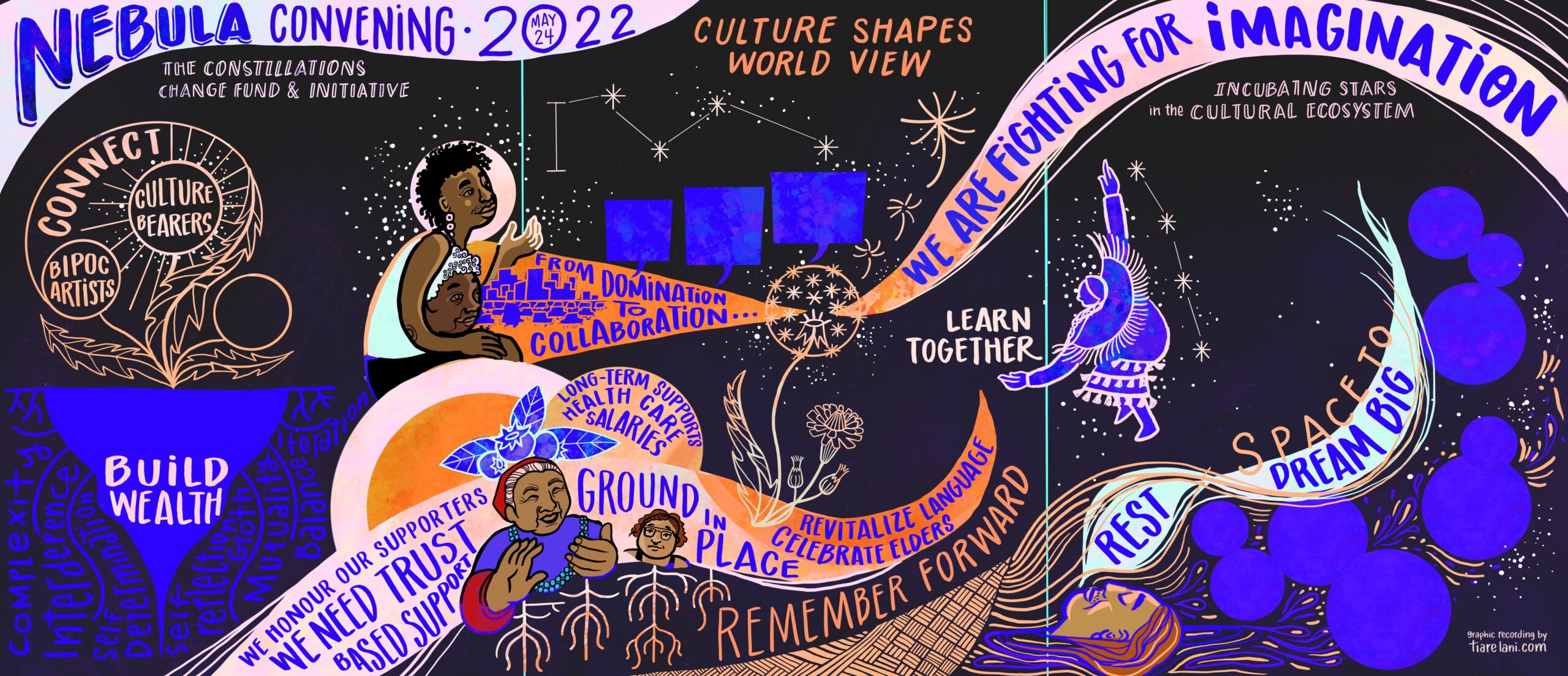Reflections on “How intersectional grantmaking can support Sex Workers and other marginalized movements in shrinking civic space”
Sienna Baskin, Sex Work Donor Collaborative, Alexis Wilson Briggs, Red Umbrella Fund, and Erin Williams, Constellations Culture Change Fund & Initiative, The Center for Cultural Power.
The Sex Work Donor Collaborative (SWDC) organized a Discovery Journey for the Human Rights Funders Network Funding Futures Festival entitled “How intersectional grantmaking can support Sex Workers and other marginalized movements in shrinking civic space.” We hoped to offer an opportunity for funders to meet sex worker activist leaders and build more support for the effective intersectional movements we need. However, our session welcomed less than five people, including our facilitators. The energy across the convening was palpable, but there was little mention of sex worker rights outside this session. As a philanthropic community focused on the most marginalized movements, this was concerning. We believe these were some of the issues at play:
Misunderstanding | Many funders do not understand the difference between sex work and human trafficking. Sex work is the voluntary provision of sexual services for money or goods. Human trafficking is exploitation, and involves coercing someone to engage in the sex trade, or any labor, against their will. Systemic oppression complicates choice for all of us, and sex work, like any other work, is not exempt from this reality. But not all sex workers are victims of human trafficking. More funders are recognizing the importance of sex workers’ human rights and supporting human rights defenders in this space. But many funders still lack an understanding of the issues and dynamics involved in sex work and human rights.
Fear | This cloud of misunderstanding can lead to fear. Funders are afraid to ask questions, to look foolish or uninformed, and to ask for help. In our research, we have found that funders also fear the reputational risk of being associated with sex workers.
Apathy | Misunderstanding and fear can lead to apathy. There are many issues that carry less risk or will require less internal advocacy, so many funders hang back. The consequence is that the resourcing for sex worker rights movements remains at less than 1% of all global human rights funding. This has severely hampered the progress of sex worker movements working to advance gender, sexual and reproductive, economic, labor, and digital justice. It has limited the progress of movements at the nexus of intersecting oppressions, including Black, trans, poor, and undocumented people, who must hide or downplay sex worker issues in order to appeal to funders.
Sex workers have been extraordinarily resilient in the face of violence, discrimination, and exclusion. With little to no funding, they continue to create programs around the world, providing community care and mutual aid and shifting culture and policy towards more liberatory frameworks. More multi-year general operating support would augment this work and strengthen broader social movements that are focused on advancing decriminalization, harm reduction, anti-trafficking, and non-carceral justice. It would respond directly to the growing “anti-gender” trends focused on denying the beauty of diverse sexual orientation and gender identity and expression.
While some of us have been supporting these movements for a long time, the SWDC’s strategy is to create a space where funders can feel comfortable asking questions to further their understanding of sex workers’ rights. We are all still learning. We invite funders to join us, helping to create spaces in philanthropy that are intentionally welcoming to sex worker identities, thereby working toward a more equitable future.



